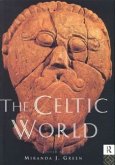The Swahili World presents the fascinating story of a major world civilization, exploring the archaeology, history, linguistics, and anthropology of the Indian Ocean coast of Africa. It covers a 1,500-year sweep of history, from the first settlement of the coast to the complex urban tradition found there today. Swahili towns contain monumental palaces, tombs, and mosques, set among more humble houses; they were home to fishers, farmers, traders, and specialists of many kinds. The towns have been Muslim since perhaps the eighth century CE, participating in international networks connecting people around the Indian Ocean rim and beyond. Successive colonial regimes have helped shape modern Swahili society, which has incorporated such influences into the region's long-standing cosmopolitan tradition.
This is the first volume to explore the Swahili in chronological perspective. Each chapter offers a unique wealth of detail on an aspect of the region's past, written by the leading scholars on the subject. The result is a book that allows both specialist and non-specialist readers to explore the diversity of the Swahili tradition, how Swahili society has changed over time, as well as how our understandings of the region have shifted since Swahili studies first began.
Scholars of the African continent will find the most nuanced and detailed consideration of Swahili culture, language and history ever produced. For readers unfamiliar with the region or the people involved, the chapters here provide an ideal introduction to a new and wonderful geography, at the interface of Africa and the Indian Ocean world, and among a people whose culture remains one of Africa's most distinctive achievements.
This is the first volume to explore the Swahili in chronological perspective. Each chapter offers a unique wealth of detail on an aspect of the region's past, written by the leading scholars on the subject. The result is a book that allows both specialist and non-specialist readers to explore the diversity of the Swahili tradition, how Swahili society has changed over time, as well as how our understandings of the region have shifted since Swahili studies first began.
Scholars of the African continent will find the most nuanced and detailed consideration of Swahili culture, language and history ever produced. For readers unfamiliar with the region or the people involved, the chapters here provide an ideal introduction to a new and wonderful geography, at the interface of Africa and the Indian Ocean world, and among a people whose culture remains one of Africa's most distinctive achievements.
"This edited volume provides a compilation of research carried out on the Swahili coast and its archaeological sites"
Stéphane Pradines, Aga Khan Centre, UK, Antiquity Publications
"This book is a great resource for those working along the Swahili coast and interior areas with similar archaeological deposits. Indeed, I finished reading the book with a better understanding of the history, archaeology, linguistics, and anthropology of the Swahili coast. From these perspectives, the authors have explored the Swahili coast's history from what they consider to be the earliest settlements to the remains of complex monumental structures found there today. This unique wealth of the detail on past of the Swahili coast is the true strength of the book that Wynne-jones and LaViolette produced for us."
Elgidius B. Ichumbaki, African Archeological Review
Stéphane Pradines, Aga Khan Centre, UK, Antiquity Publications
"This book is a great resource for those working along the Swahili coast and interior areas with similar archaeological deposits. Indeed, I finished reading the book with a better understanding of the history, archaeology, linguistics, and anthropology of the Swahili coast. From these perspectives, the authors have explored the Swahili coast's history from what they consider to be the earliest settlements to the remains of complex monumental structures found there today. This unique wealth of the detail on past of the Swahili coast is the true strength of the book that Wynne-jones and LaViolette produced for us."
Elgidius B. Ichumbaki, African Archeological Review








